Bacteria-to-Human Protein Networks Reveal Origins of Endogenous DNA Damage
- PMID: 30633903
- PMCID: PMC6344048
- DOI: 10.1016/j.cell.2018.12.008
Bacteria-to-Human Protein Networks Reveal Origins of Endogenous DNA Damage
Abstract
DNA damage provokes mutations and cancer and results from external carcinogens or endogenous cellular processes. However, the intrinsic instigators of endogenous DNA damage are poorly understood. Here, we identify proteins that promote endogenous DNA damage when overproduced: the DNA "damage-up" proteins (DDPs). We discover a large network of DDPs in Escherichia coli and deconvolute them into six function clusters, demonstrating DDP mechanisms in three: reactive oxygen increase by transmembrane transporters, chromosome loss by replisome binding, and replication stalling by transcription factors. Their 284 human homologs are over-represented among known cancer drivers, and their RNAs in tumors predict heavy mutagenesis and a poor prognosis. Half of the tested human homologs promote DNA damage and mutation when overproduced in human cells, with DNA damage-elevating mechanisms like those in E. coli. Our work identifies networks of DDPs that provoke endogenous DNA damage and may reveal DNA damage-associated functions of many human known and newly implicated cancer-promoting proteins.
Keywords: DNA damage response; DNA double-strand breaks; DNMT1; Escherichia coli; cancer; evolution; genome instability; human cells; microbial cancer models; replication fork reversal.
Copyright © 2018 Elsevier Inc. All rights reserved.
Conflict of interest statement
DECLARATION OF INTERESTS
The authors declare no competing interests.
Figures
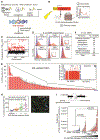
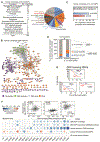


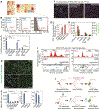
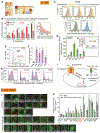
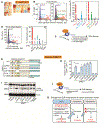
Comment in
-
Human protein mutagens found via bacteria.Nat Rev Genet. 2019 Mar;20(3):132-133. doi: 10.1038/s41576-019-0096-4. Nat Rev Genet. 2019. PMID: 30670831 No abstract available.
References
-
- Asad NR, Asad LMBO, Almeida C.E.B.d., Felzenszwalb I, Cabral-Neto JB, and Leitão AC (2004). Several pathways of hydrogen peroxide action that damage the E. coli genome. Genetics and Molecular Biology 27, 291–303.
Publication types
MeSH terms
Substances
Grants and funding
- R01 CA198279/CA/NCI NIH HHS/United States
- R01 GM089636/GM/NIGMS NIH HHS/United States
- R01 GM102679/GM/NIGMS NIH HHS/United States
- T32 HD007495/HD/NICHD NIH HHS/United States
- IIR 18-035/HX/HSRD VA/United States
- U54 HD007495/HD/NICHD NIH HHS/United States
- P30 CA125123/CA/NCI NIH HHS/United States
- P30 DK056338/DK/NIDDK NIH HHS/United States
- P30 AI036211/AI/NIAID NIH HHS/United States
- R35 GM122598/GM/NIGMS NIH HHS/United States
- DP1 CA174424/CA/NCI NIH HHS/United States
- R01 CA201268/CA/NCI NIH HHS/United States
- DP2 OD008371/OD/NIH HHS/United States
- P30 CA016672/CA/NCI NIH HHS/United States
- U01 CA168394/CA/NCI NIH HHS/United States
- U01 CA217842/CA/NCI NIH HHS/United States
- R01 CA175486/CA/NCI NIH HHS/United States
- R01 GM088653/GM/NIGMS NIH HHS/United States
- T32 GM008231/GM/NIGMS NIH HHS/United States
- S10 RR024574/RR/NCRR NIH HHS/United States
- R01 GM106373/GM/NIGMS NIH HHS/United States
- U24 CA209851/CA/NCI NIH HHS/United States
- P30 HD007495/HD/NICHD NIH HHS/United States
LinkOut - more resources
Full Text Sources
Other Literature Sources
Molecular Biology Databases

